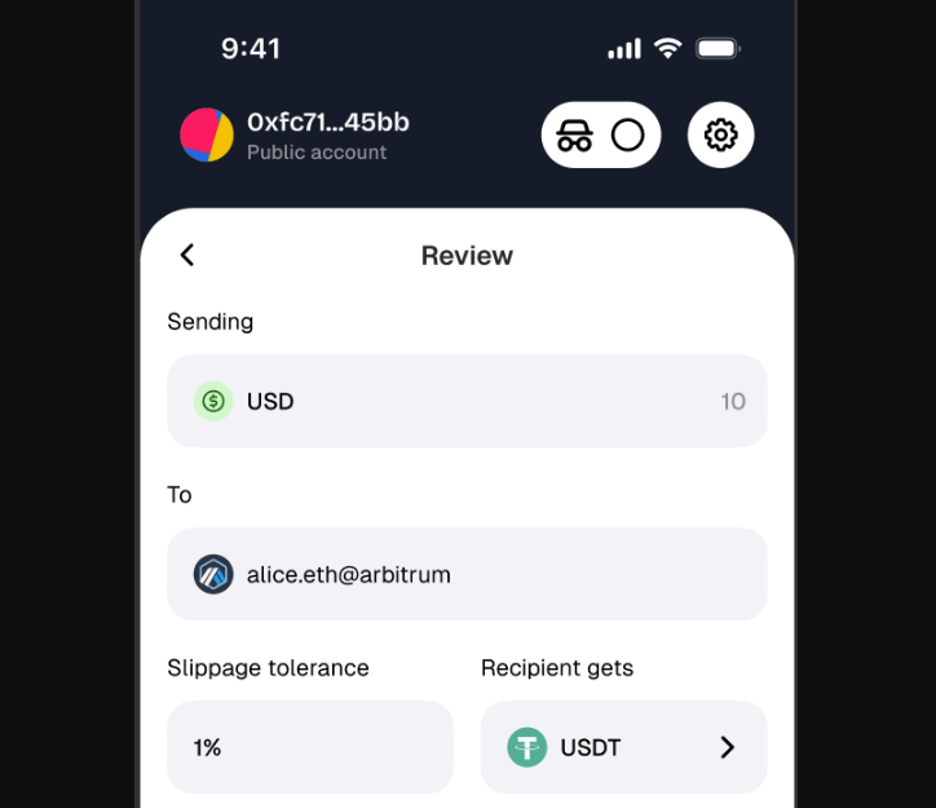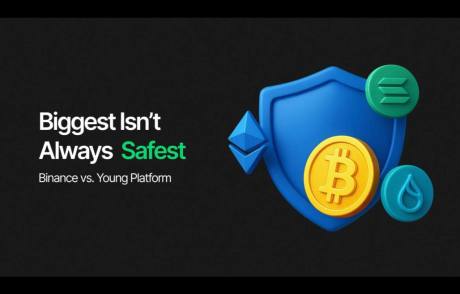Reason to trust

How Our News is Made
Strict editorial policy that focuses on accuracy, relevance, and impartiality
Ad discliamer
Morbi pretium leo et nisl aliquam mollis. Quisque arcu lorem, ultricies quis pellentesque nec, ullamcorper eu odio.
The Ethereum Foundation is collaborating with Wonderland and the team behind Ambire Wallet to develop a prototype wallet that showcases the benefits of the upcoming token standards ERC-7930 and ERC-7828, dramatically simplifying cross-chain transactions and preventing costly mistakes.
The initiative is called Kohaku Wallet, which aims to streamline blockchain transactions by standardizing the way addresses are handled across multiple networks.
Kohaku Wallet is an attempt to solve a major headache for cross-chain transactions today, which is that there’s no unified way for wallets or dApps to display or interpret cross–chain address information. Due to this deficiency, users are troubled by an inconsistent experience when they interact with multichain DeFi applications and services, creating a significant impediment to seamless cross-chain asset transfers.
With ERC-7930 and ERC-7828, the Ethereum Foundation is looking to create a uniform and user-friendly way for wallets to deal with blockchain addresses across the broader Ethereum ecosystem. To showcase how this works, it has teamed up with Wonderland, a group of developers, data scientists and blockchain researchers focused on improving Ethereum’s DeFi ecosystem, to create Kohaku Wallet. It’s a new prototype wallet that natively integrates the ERC-7930 and ERC-7828 standards to support smooth cross-chain transactions without the risk of errors.
a few big announcements from the L2 interop working group + some interop alpha 🔥…
1. Introducing Kohaku: a prototype wallet purpose-built for interop, crosschain UX, and privacy. Developed by teams from the EF, @DeFi_Wonderland, @AmbireWallet, & in collaboration with wallet… pic.twitter.com/1I6AGivVeL
— joshrudolf.eth (@rudolf6_) June 26, 2025
A Prototype For Cross-Chain Interoperability
The Kohaku Wallet is essentially a fork of Ambire Wallet, which was chosen as the basis of the project because it’s one of the easiest-to-use open-source smart wallets in the Web3 industry, with support for both Ethereum and Binance Smart Chain-based networks. The name “Kohaku” pays homage to the wallet’s roots, as it’s the Japanese word for “amber”, which inspired the name “Ambire Wallet”.
With features such as account abstraction for simple email-based account recovery, hardware wallet support and automatic gas management, Ambire is one of the easiest wallets for crypto newcomers, which makes it an ideal platform for integrating the ERC-7930 and ERC-7828 standards. Kohaku, currently available as a testnet prototype, aims to improve blockchain interoperability while supporting features such as unified balances across chains and private transfers.
The ERC-7930 standard defines a compact, binary format for blockchain interoperability that’s optimized for any protocol that requires a single representation for every network. The machine-readable format makes it simple for any system interacting with wallet addresses to parse and route transfers across multiple chains without issues, improving automation while eliminating the risk of errors due to mismatched address formats
As for ERC-7828, this adds a human-readable layer for address interoperability, utilizing simple formats such as “address@chain”. In a nutshell, it enables blockchain users to quickly identify which blockchain a wallet address is linked to, making transactions across different networks within the Ethereum ecosystem more intuitive.
Human-Readable Addresses
In a blog post, Wonderland explained that ERC-7828 serves as a “text-layer” for anything that interacts with humans, ensuring they have clarity at a glance. The idea is to make blockchain addresses more identifiable for the vast majority of crypto users who are not familiar with the cryptographic formats used by different chains.
Kohaku natively integrates ERC-7930 and ERC-7828 to showcase the value of the proposed user experience improvements and demonstrate how other wallets can support the new standards. One of its main purposes is to help prevent one of the most common errors in cross-chain transactions, where users accidentally send tokens to an address on the wrong network. In such instances, the funds inevitably disappear into the “aether”, from where they’re irrecoverable.
Kohaku tries to put an end to this by displaying human-readable blockchain addresses, where the target chain is clearly identified in order to prevent such mistakes:

As an example, when a user attempts to send funds, it will display an address such as “alice.eth@arbitrum”, which clearly shows that Arbitrum is the target network, or “bob.eth@zksync”, where zkSync is unmistakably the destination chain.
As a long term goal, Kohaku Wallet ultimately aims to operate in a “blockchain-agnostic” way, automating transactions so that users no longer have to manually select the desired network before confirming a cross-chain transaction. The idea is that the user can simply input an address, and have Kohaku automatically recognize the destination network, further enhancing the user experience. By abstracting away the need to know which blockchain the user lives on, it breaks down another major barrier to Web3 adoption.
The Kohaku team has plenty of additional features in the pipeline, with plans to support private sends and private receives via 0xbow privacy pools, stealth addresses and universal balances. Additionally, it’s working with Ambire’s developers to add some of the most popular features found in Ambire Wallet, such as gas abstraction, social recovery and payment requests.
Safe & Simple Cross-Chain Transactions
Kohaku Wallet’s development accelerates at a time when Ethereum is showing strong momentum, with the price of ETH surging more than 45% in the last month, edging closer to its all-time high of $4,891.70. The rapid increase is thought to be linked to increased institutional adoption of ETH as a treasury asset, BlackRock’s plans to enable staking within its Ethereum ETF, and the general pro-crypto stance of the Trump administration.
As Ethereum’s importance grows and it pushes for closer integration with other blockchains, the ERC-7930 and ERC-7828 standards look set to play a vital role in enabling safer, automated cross-chain transactions, easing complexity for blockchain users. In this context, Kohaku Wallet is an important project, helping Ethereum to become a more accessible and interconnected platform for decentralized finance and the wider Web3 economy.


















